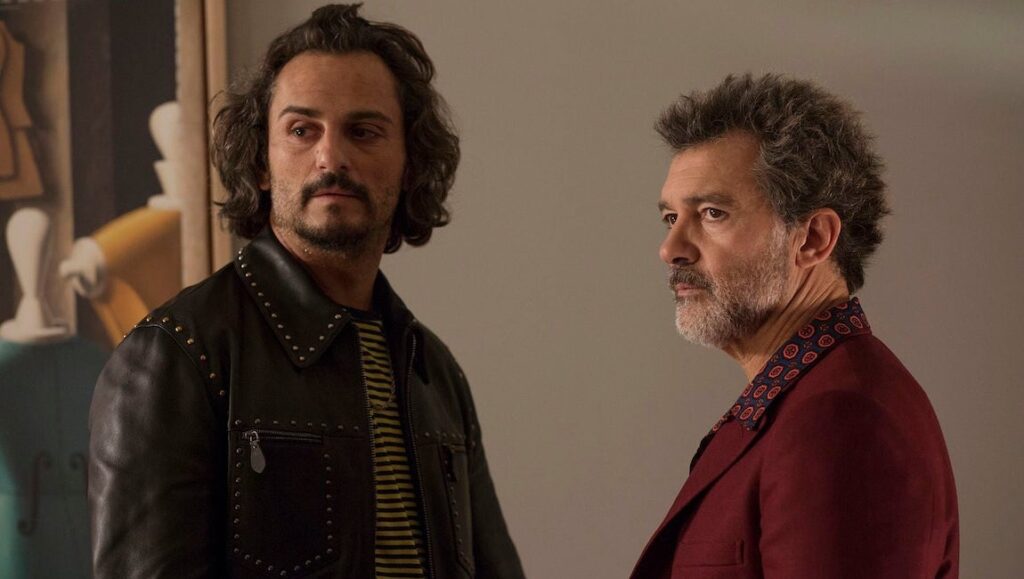With Pain and Glory, Pedro Almodóvar has made his own 8½, seamlessly melding autobiography and fiction here to the point where they’re nearly indistinguishable. Even though the protagonist is a film director named Salvador Mallo (Antonio Banderas) who’s modeled on Almodóvar himself, this comes across not as a narcissistic indulgence, but as a profound demonstration of how real life is both reflected in, and transformed by, artistic creation. Salvador’s voiceover informs us about the multiple chronic ailments he suffers from: debilitating back pain, migraines, tinnitus, anxiety, panic attacks. These health problems, along with an ongoing creative blockage, have effectively halted his filmmaking career, and he despairs that in the absence of artistic work, his life has no meaning. However, Salvador sticks around long enough to be honored by the Madrid cinematheque with a 30th anniversary screening of a restored print of Sabor, a key film of Salvador’s oeuvre.
The lead actor of that film, Alberto Crespo (Asier Etxeandia), is also still around, but hasn’t spoken to Salvador in ages, after a falling out between the two over Salvador’s public criticism of Alberto’s performance in that film. Salvador’s been asked to present the film, and because he’s too nervous to do it alone, he looks up Alberto to make amends and ask him to join him for a Q&A. Alberto gives Salvador a hard time at first, but eventually agrees. Alberto has become a raging heroin addict in the years since he acted for Salvador, who impulsively joins Alberto in “chasing the dragon,” even though he’s never touched the stuff before. The heroin, besides easing, or perhaps merely distracting him from his pain, takes him on trips through his memories: He revisits scenes from his childhood, featuring his mother (played in those years by a luminous Penelope Cruz) and a handsome young laborer he taught to read, the source of his first stirrings of homoerotic desire. The past connects to the present, as Salvador reconnects with key figures from his past. One of these meetings, with an old lover, occasions what is perhaps the loveliest, saddest, and most tender passages in all of Almodóvar’s oeuvre. This scene is the major highlight of a film in which Almodóvar fruitfully mines his life and art — echoes of his previous films reverberate throughout — to create one of his very finest works.
Published as part of October 2019’s Before We Vanish.


Comments are closed.